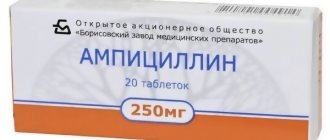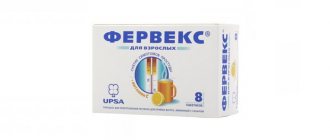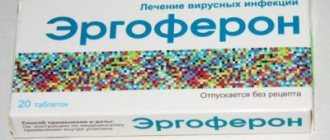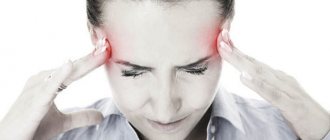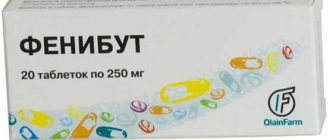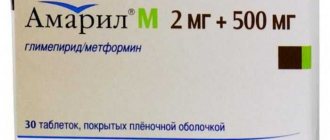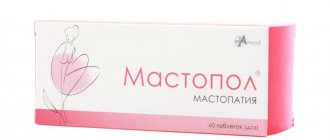Headaches and toothaches are the most common ailments.
Such pain is very difficult to endure, so many decide to fight it with the help of various medications.
The range of medications for headaches is very wide, but few people know that pain can be caused by different reasons and they need to be treated differently.
The most common option that people use to get rid of headaches is Citramon. But today there are several versions of this drug in pharmacies, and in this article we will analyze their main differences.
Letters from our readers
Topic: Grandma's blood pressure has returned to normal!
From: Christina ( [email protected] )
To: Administration otgipertonii.ru
Christina, Moscow
My grandmother’s hypertension is hereditary - most likely, I will have the same problems as I get older.
I accidentally found an article on the Internet that literally saved my grandmother. She was tormented by headaches and had a repeated crisis. I bought the course and monitored the correct treatment.
After 6 weeks she even started talking differently. She said that her head no longer hurts, but she still takes pills for blood pressure. I am sending a link to the article
Composition and release form
Citramon belongs to the category of non-steroidal anti-inflammatory drugs. The effectiveness of a medicine is related to its composition. Today there are several varieties of the drug that contain the same active ingredients. The only difference is the amount of these substances and the composition of additional ingredients:
- Citramon P – it contains 0.18 g of paracetamol, 0.03 g of caffeine and 0.24 g of acetylsalicylic acid.
- Citramon Forte - includes 0.24 g of paracetamol, 0.04 g of caffeine and 0.32 g of acetylsalicylic acid.
- Citramon Ultra - includes 0.18 g of paracetamol, 0.0273 g of caffeine and 0.24 g of acetylsalicylic acid.
- Citramon Borimed - it contains 0.23 g of paracetamol, 0.03 g of caffeine and 0.26 g of acetylsalicylic acid.
Citramon tablets also contain additional ingredients:
- talc;
- lemon acid;
- starch;
- magnesium stearate;
- cocoa.
Companies produce the drug in tablet form. The substance has a light brown tint and various inclusions. The medicine contains cocoa, which is why it has a characteristic odor.
The tablets are packaged in blisters containing 6-10 pieces. The substance can be sold in 1 plate or in the form of cardboard packages containing several blisters and instructions.
Compound
According to data provided on Wikipedia, traditionally Citramon tablets included 240 mg of acetylsalicylic acid (ASA), 180 mg of phenacetin , 30 mg of caffeine , 15 mg of cocoa, 20 mg of citric acid.
However, at present, the classic recipe for making the drug is not used due to the withdrawal of one of its active components, phenacetin, (this is due to the high nephrotoxicity of the substance ).
Numerous manufacturers produce medicines whose names contain the word “Citramon”, but they all have a slightly modified composition, in which Paracetamol is used an analgesic and antipyretic instead of phenacetin .
Tablets from different manufacturers maintain the same uniformity of active ingredients, but the concentration of each of them may differ.
In the composition of Citramon P, Citramon U and Citramon M, the active components (ASA, paracetamol and caffeine ), for example, are contained in the same concentration as in the original drug. But in Citramon-Forte their concentration is different: each tablet contains 320 mg of ASA, 240 mg of paracetamol and 40 mg of caffeine .
Citramon Borimed tablets contain 220 mg of ASA, 200 mg of paracetamol and 27 mg of caffeine . The concentration of these substances in Citramon-LekT tablets is, respectively, 240 mg, 180 mg and 27.5 mg.
But the main difference between Citramon Ultra and Citramon is the presence of a film shell, which makes the tablet easier to swallow, acts as a reliable barrier between the mucous membrane of the digestive canal and the active substances contained in the tablets (in particular, the shell protects the stomach from the aggressive effects of ASA) and accelerates the absorption of the drug.
pharmachologic effect
Citramon is a combination medicine. The effectiveness of the drug is determined by its ingredients:
- Acetylsalicylic acid – produces an antipyretic effect and copes with inflammation. With its help, it is possible to reduce pain, especially associated with the inflammatory process. The drug also inhibits the process of platelet adhesion and blood clot formation. With its help, it is possible to improve blood circulation in the affected area.
- Caffeine – increases the excitability of the spinal cord. With its help, it is possible to activate the vasomotor and respiratory centers. The product also dilates blood vessels in the brain, kidneys, heart and skeletal muscles. With its help, it is possible to reduce platelet aggregation. The substance copes with the feeling of fatigue and increased drowsiness. With its help you can increase physical and mental activity. In small doses, caffeine practically does not stimulate the activity of the nervous system, but it can speed up blood circulation and improve vascular tone.
- Paracetamol is a substance that has analgesic and antipyretic properties. It also has a slight anti-inflammatory effect, which is due to its effect on the thermoregulation center of the hypothalamus. With the help of the drug it is possible to inhibit the production of prostaglandins.
Characteristics of the drug
Citramon belongs to the pharmacological group of analgesic, antipyretic drugs. The drug is available in tablet form.
Citramon has a wide range of uses and is characterized by the following therapeutic properties:
- antipyretic effect;
- anti-inflammatory effect;
- analgesic effect;
- decreased platelet aggregation;
- dilation of blood vessels;
- stimulation of the respiratory center;
- normalization of cerebral vascular tone;
- stimulation of the activity of the vasomotor center;
- acceleration of blood flow processes;
- antipyretic effect.
Indications
Many people are interested in what Citramon tablets are for. First of all, the drug is prescribed when moderate pain syndrome of various etiologies appears. Key indications include the following:
- headache;
- neuralgia;
- migraine;
- arthralgia;
- toothache;
- myalgia;
- algodismenorrhea.
Also, the substance is often prescribed when febrile syndrome and high temperature occur. This condition often accompanies influenza and ARVI.
Also, many people have a question: do Citramon tablets increase or decrease blood pressure? The drug contains caffeine, which leads to stimulation of the nervous system and increased tone.
As a result, the use of Citramon may cause increased blood pressure. Particular caution should be exercised when drinking coffee and tea while taking medication, as this can lead to a caffeine overdose.
If a person has hypotension and a headache, you can take a tablet of the drug. It will help cope with discomfort and improve the condition. At what pressure this should be done, at what levels, it is better to find out from your doctor.
Range of applications
The universal composition of the drug determines a fairly wide spectrum of action of Citramon. The medicine can be called universal.
Citramon is prescribed to patients in the following cases:
- headache;
- cold;
- acute respiratory infections;
- toothache;
- decreased tone;
- disruption of blood flow processes in the area of cerebral vessels;
- neuralgia;
- pain in the joints;
- muscle pain;
- algodismenorrhea;
- fever.
Contraindications
This medicine may not always be taken. Contraindications to the use of the product include:
- a noticeable decrease in kidney and liver activity;
- digestive bleeding, including in the past;
- individual intolerance to the ingredients of the drug;
- peptic ulcer at the acute stage;
- hemorrhagic diathesis, which is characterized by impaired blood clotting and increased bleeding of capillaries;
- lactation period;
- increased intraocular pressure;
- age less than 14-15 years;
- first and third trimesters of pregnancy;
- vitamin K deficiency;
- lack of glucose-6-phosphate dehydrogenase;
- excessive excitability of the nervous system, insomnia;
- arterial hypertension.
Instructions for use
To achieve the desired result, you must adhere to all doctor's instructions. Typically, specialists prescribe 1-2 tablets of medication. It is recommended to be consumed after meals. You can take no more than 6 pieces per day.
If the use of the substance is due to an increase in temperature, it is taken for a maximum of 3 days. If the product is used to eliminate pain, it should be used within 5 days. An increase in dosage must be discussed with your doctor. In addition, the volume of the medicine directly depends on the type of substance.
Citramon Ultra
This version of the drug contains a minimum amount of active ingredients, therefore it has a minimum of side effects. The drug should be taken according to this scheme: 1-2 pieces of the drug no more than 4 times. Between doses it is required to maintain an interval of 4-8 hours. The maximum daily volume is 8 tablets.
Citramon P
This remedy is prescribed to people over 15 years of age according to strict indications. It is recommended to take 1-2 tablets up to 3 times a day. The interval between doses should be 6 hours. For patients with impaired kidney and liver function, this period is increased to 8 hours. The course of therapy is 7-10 days.
Citramon Borimed
This type of medication is used to relieve pain. The course of use of the medicine cannot be more than 10 days. Usually doctors prescribe 3-4 tablets. The maximum daily volume is 8 pieces. The patient can be treated in this way for no more than 1 week.
Citramon Forte
This remedy is prescribed to adult patients and children over 14 years of age. It can be used to increase blood pressure and relieve pain. The drug also helps reduce fever.
Usually doctors prescribe 1-2 tablets. They should be drunk 2-3 times a day. To quickly eliminate pain, you need to take 2 tablets at a time. The maximum daily volume is 6 tablets. You can take the medicine for no more than 7 days.
Side effects
Citramon has many side effects:
- If the digestive system is affected, nausea and vomiting are observed. There is also a risk of pain in the epigastric region, liver dysfunction, and the formation of erosions and ulcers in the digestive organs.
- From the circulatory system, there is a threat of decreased blood clotting. The drug can also provoke various bleedings.
- If the functioning of the nervous system is disrupted, headaches, dizziness, and insomnia are observed.
- If the excretory system is damaged, there is a risk of kidney damage.
- Allergic reactions manifest themselves in the form of itching, urticaria, and Stevens-Johnson syndrome. There is also a risk of developing anaphylactic shock and toxic epidermal necrolysis. In a child, the drug can cause Reye's syndrome.
- Possible increased blood pressure, tachycardia, arrhythmia.
The medicine can cause disturbances in the functioning of the organ of hearing - they manifest themselves in the form of deafness and the appearance of tinnitus. Some people complain of blurred vision.
Side effects
The main pathological reactions are associated with possible allergic mechanisms, leading to damage to all systems and organs. The following side effects of treatment are considered the most severe:
- Most complications come from the stomach - in mild cases, only moderate heartburn and nausea occur. Sometimes multiple ulcers form, which are accompanied by symptoms of acute gastric bleeding.
- Patients with allergies often experience toxic skin lesions, accompanied by multiple blisters and hemorrhages. In rare cases, a severe attack of bronchial asthma occurs.
- Failure to comply with the dosage and regimen causes a decrease in blood clotting, liver and kidney damage. In such a situation, increased bleeding develops, plus a sharp deterioration in well-being.
Severe consequences are usually the result of violation of instructions - patients take the medicine contrary to contraindications.
Overdose
When using an excess amount of the drug, undesirable consequences appear. Most often, their occurrence is caused by an overdose of acetylsalicylic acid. In case of mild intoxication, nausea and vomiting, dizziness, gastralgia, and ringing in the ears are observed.
In more complex situations, there is a risk of inhibited reactions, increased drowsiness, and convulsions. Some patients experience bronchospasm, breathing problems, and bleeding. Many complain of bronchospasm and anuria. There is also a risk of collapse.
Initially, central hyperventilation of the lungs provokes respiratory alkalosis. This condition is characterized by shortness of breath, cyanosis, sweating and symptoms of suffocation. As the signs of poisoning increase, respiratory paralysis is observed, which progresses all the time. Uncoupling of oxidative phosphorylation also develops. This causes respiratory acidosis.
If symptoms of overdose appear, you need to constantly monitor the acid-base and electrolyte balance. Depending on the metabolic processes, sodium citrate, bicarbonate or sodium lactate can be administered. By increasing reserve alkalinity, it is possible to accelerate the elimination of acetylsalicylic acid.
Oral tablets Citramon
Instructions for medical use of the drug
Description of pharmacological action
Combined drug. Acetylsalicylic acid has an antipyretic and anti-inflammatory effect, relieves pain, especially caused by the inflammatory process, and also moderately inhibits platelet aggregation and thrombus formation, improves microcirculation at the site of inflammation. Caffeine increases the reflex excitability of the spinal cord, stimulates the respiratory and vasomotor centers, dilates the blood vessels of skeletal muscles, brain, heart, kidneys, reduces platelet aggregation; reduces drowsiness, fatigue, increases mental and physical performance. In this combination, caffeine in a small dose has virtually no stimulating effect on the central nervous system, but helps normalize cerebral vascular tone and accelerate blood flow. Paracetamol has an analgesic, antipyretic and extremely weak anti-inflammatory effect, which is associated with its effect on the thermoregulation center in the hypothalamus and a weak ability to inhibit the synthesis of prostaglandins in peripheral tissues.
Indications for use
Pain syndrome of mild and moderate severity (of various origins): - headache; - migraine; - toothache; - neuralgia; - myalgia; - arthralgia; - algodismenorrhea. Feverish syndrome: - with acute respiratory infections; - with the flu.
Release form
cellless contour packages (1) - cardboard packs.
Pharmacodynamics
Acetylsalicylic acid has an antipyretic and anti-inflammatory effect, relieves pain, especially caused by the inflammatory process, and also moderately inhibits platelet aggregation and thrombus formation, improves microcirculation at the site of inflammation. Caffeine increases the reflex excitability of the spinal cord, stimulates the respiratory and vasomotor centers, dilates the blood vessels of skeletal muscles, brain, heart, kidneys, reduces platelet aggregation; reduces drowsiness, fatigue, increases mental and physical performance. In this combination, caffeine in a small dose has virtually no stimulating effect on the central nervous system, but helps normalize cerebral vascular tone and accelerate blood flow. Paracetamol has an analgesic, antipyretic and extremely weak anti-inflammatory effect, which is associated with its effect on the thermoregulation center in the hypothalamus and a weak ability to inhibit the synthesis of prostaglandins in peripheral tissues.
Use during pregnancy
Contraindicated. Especially in the 1st and 3rd trimesters and during breastfeeding.
Contraindications for use
The drug is not recommended to be used: - if the body is sensitive to any substance included in its composition; - for diseases of the gastrointestinal tract in the acute phase (ulcer, erosion); - with gastrointestinal bleeding; - hemophilia, hemorrhagic diathesis, hypoprothrombinemia, portal hypertension; - lack of vitamin K; - during pregnancy, especially in the 1st and 3rd trimesters and during breastfeeding; - with deficiency of glucose-6-phosphate dehydrogenase, - with severe arterial hypertension, - with severe coronary heart disease, - with glaucoma, - with increased excitability and sleep disturbance; - for surgical interventions accompanied by bleeding, - for children under 15 years of age, in order to avoid the risk of developing Reye's syndrome, - for gout and liver diseases. In cases of doubt, it is better to consult a doctor or pharmacist.
Side effects
Gastralgia, nausea, vomiting, hepatotoxicity, nephrotoxicity, erosive and ulcerative lesions of the gastrointestinal tract, allergic reactions (including Stevens-Johnson syndrome, Lyell), tachycardia, increased blood pressure, bronchospasm. With long-term use - dizziness, headache, visual impairment, tinnitus, decreased platelet aggregation, hypocoagulation, hemorrhagic syndrome (nosebleeds, bleeding gums, purpura, etc.), kidney damage with papillary necrosis; deafness; Reye's syndrome in children (hyperpyrexia, metabolic acidosis, nervous system and mental disorders, vomiting, liver dysfunction).
Directions for use and doses
Orally (during or after meals) 1 tablet every 4 hours, for pain - 1-2 tablets; the average daily dose is 3-4 tablets, the maximum daily dose is 8 tablets. The course of treatment is no more than 7-10 days. The drug should not be taken for more than 5 days as an analgesic and for more than 3 days as an antipyretic (without prescription and medical supervision). Other dosages and regimens of use are determined by the doctor.
Overdose
Symptoms (due to acetylsalicylic acid): for mild intoxication - nausea, vomiting, gastralgia, dizziness, ringing in the ears; severe intoxication - lethargy, drowsiness, collapse, convulsions, bronchospasm, difficulty breathing, anuria, bleeding. Initially, central hyperventilation of the lungs leads to respiratory alkalosis (shortness of breath, suffocation, cyanosis, perspiration). As intoxication increases, progressive respiratory paralysis and uncoupling of oxidative phosphorylation cause respiratory acidosis. Treatment: constant monitoring of acid-base balance and electrolyte balance; depending on the state of metabolism - the introduction of sodium bicarbonate, sodium citrate or sodium lactate. Increasing reserve alkalinity enhances the excretion of acetylsalicylic acid due to alkalinization of urine.
Interactions with other drugs
Strengthens the effect of heparin, indirect anticoagulants, reserpine, steroid hormones and hypoglycemic drugs. Co-administration with other NSAIDs and methotrexate increases the risk of side effects. Reduces the effectiveness of spironolactone, furosemide, antihypertensive drugs, as well as anti-gout drugs that promote the excretion of uric acid. Barbiturates, rifampicin, salicylamide, antiepileptic drugs and other stimulants of microsomal oxidation contribute to the formation of toxic paracetamol metabolites that affect liver function. Metoclopramide accelerates the absorption of paracetamol. Under the influence of paracetamol, T1/2 of chloramphenicol increases 5 times. When taken repeatedly, paracetamol may enhance the effect of anticoagulants (dicoumarin derivatives). The simultaneous use of paracetamol and ethanol increases the risk of developing hepatotoxic effects. Caffeine accelerates the absorption of ergotamine.
Storage conditions
Store in a dry place at room temperature.
Best before date
48 months
ATX classification:
N Nervous system
N02 Analgesics
N02B Analgesics and antipyretics
N02BA Salicylic acid and its derivatives
N02BA51 Acetylsalicylic acid in combination with other drugs (excluding psycholeptics)
Interaction with other drugs
Citramon may affect the effectiveness of other drugs. Therefore, before starting treatment, you should consult your doctor. Other drugs also affect the action of Citramon.
This medicine increases the activity of anti-clotting drugs. It may also increase adverse reactions from the use of glucocorticoid hormones. In addition, Citramon leads to a weakening of the activity of diuretics and antihypertensive drugs. A similar result is observed when combining the medicine with drugs for gout.
Can the drug be given to children?
The instructions indicate that Citramon can only be used from the age of 14. Use of the medicine is strictly prohibited for young children.
Citramon contains acetylsalicylic acid, which can cause damage to the liver, kidneys and nervous system. Even a single dose of medication by a child can cause the development of Reye's syndrome.
After using the substance, there is a risk of hemorrhagic diathesis. This condition is accompanied by the appearance of hemorrhages that occur in the structure of the skin and subcutaneous tissue.
Important: Children are characterized by high sensitivity of the mucous membranes of the digestive organs. In this regard, they are quickly irritated by acetylsalicylic acid.
Citramon during pregnancy and lactation
Women often suffer from headaches during pregnancy. However, the instructions for use of Citramon prohibit the use of this product by expectant mothers in the 1st and 3rd trimester. The fact is that using pills carries a risk of developing pathologies in the fetus. In the first 3 months of pregnancy, all the important organs of the unborn child are formed. Acetylsalicylic acid, which Citramon contains, can negatively affect the baby, causing pathologies such as cleft palate (cleft palate) and cleft lip (cleft upper lip).
Is the drug suitable for pregnant women?
Citramon should not be used in the early stages and in the third trimester of pregnancy. The medicine contains acetylsalicylic acid. It has a teratogenic effect. This can provoke the development of congenital malformations of the fetus.
When using Citramon in the later stages of pregnancy, there is a risk of premature closure of the aortic duct and an increased risk of bleeding during childbirth.
In the second trimester, the appropriateness of using the medication should be assessed by a doctor. The drug is prescribed only when the benefits of such therapy outweigh the risk to the child.
During the treatment period, it is strictly forbidden to breastfeed the baby. This is due to the presence of acetylsalicylic acid in the drug. It passes into breast milk and leads to various consequences - disruption of platelet production, liver damage, bleeding. There is also a risk of damage to the digestive tract and allergies.
special instructions
To get the required results and avoid unwanted consequences, you need to follow a number of medical recommendations:
- It is prohibited to use the medicine during surgery. Otherwise, this is fraught with the development of bleeding.
- Acetylsalicylic acid slows down the excretion of uric acid. In some people, taking the medicine may cause a worsening of gout.
- If the kidneys and liver are damaged, the drug should be taken at intervals of 8 hours.
- Drinking alcohol is prohibited during treatment.
- In case of alcohol intoxication of the liver, the dosage should be selected individually.
- During therapy, it is forbidden to drink drinks containing caffeine, since this substance is already present in the drug.
- If the symptoms of inflammation and pain do not go away, it is strictly forbidden to increase the dosage on your own.
- People with diseased blood vessels and damage to the circulatory system need to use the substance very carefully.
Recommendations for use
It is not recommended to use Citramon in combination with other medications that also contain caffeine, paracetamol and acetylsalicylic acid. You should not, at your own discretion, exceed the dosage recommended in the instructions for the drug. You should use Citramon with caution if you have liver problems.
If the patient has recently undergone surgery in the oral cavity, then Citramon may cause bleeding due to increased platelet aggregation.
If you use the drug for a long period of time, you may experience a decrease in the excretion of uric acid from the body.
It is not recommended to drink Citramon with coffee or tea, as this will result in sleep disturbances, an increased feeling of tension, and also a feeling of fear.
Reviews
Numerous reviews of Citramon confirm the high effectiveness of the drug. Many note that this is an affordable and effective remedy for headaches and migraines. The drug helps well at elevated temperatures. In addition, it allows you to slightly increase the pressure.
Some people note the occurrence of adverse reactions. Therefore, before starting therapy, you should consult your doctor. In general, Citramon is considered a good drug for occasional use.
Can children take Citramon?
The use of ASA-containing drugs for the treatment of ARVI in children (with or without hyperthermia
With some viral infections (particularly those caused by varicella zoster or influenza A or B ), there is a risk of developing acute hepatic encephalopathy ( Reye's syndrome ), which requires immediate medical attention. One of the signs of Reye's syndrome is prolonged vomiting.
Taking into account the above reasons, the use of tablets in patients under sixteen years of age is contraindicated.
Since the drug has a large number of side effects, it is better for children with a headache or toothache to choose safer remedies.
Approximate price in Russia
This popular medicine can be purchased at any pharmacy. This does not require a doctor's prescription. The cost of the drug depends on its type:
- Citramon P - will cost 10-33 rubles.
- Citramon Forte - costs about 45-55 rubles.
- Citramon Ultra - can be purchased for 83-95 rubles.
- Citramon Borimed - costs 50-65 rubles.
Citramon is an effective drug that helps cope with various types of pain and feverish conditions. To get excellent results, you must strictly follow the instructions and take into account all contraindications to the use of the product.
Did you like the article? Save it!
Still have questions? Ask them in the comments! Cardiologist Mariam Harutyunyan will answer them.
Ivan Grekhov
Graduated from the Ural State Medical University with a degree in General Medicine. General practitioner

